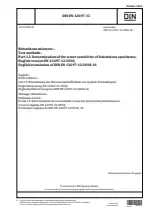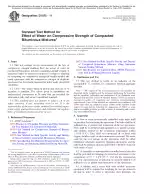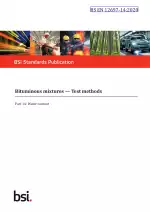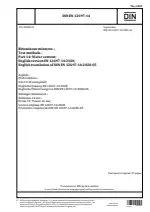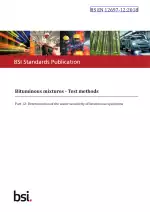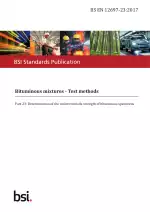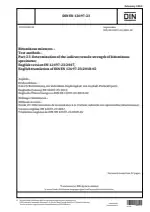Bituminous Mixtures - Test Methods - Part 12: Determination of the Water Sensitivity of Bituminous Specimens
Also Known As:
The DIN EN 12697-12 standard outlines three different test methods for assessing the water sensitivity of bituminous mixtures.
Method A involves measuring the indirect tensile strength of cylindrical specimens of bituminous mixtures. Method B, on the other hand, determines the compression strength of cylindrical specimens. Lastly, Method C focuses on evaluating the bonding value of a bituminous mixture one hour after mixing, specifically for softer asphalt with low kinematic viscosity.
These test methods are applicable for assessing the effects of saturation and accelerated water conditioning on asphalt mixtures, both with and without anti-stripping additives. These additives can include liquids like amines, as well as fillers such as hydrated lime or cement. By using these test methods, the water sensitivity of bituminous mixtures can be evaluated, helping to ensure the durability and performance of the asphalt in various conditions.
| Descriptors | Adhesive force, Asphalts, Conditioning, Construction, Construction materials, Cylindrical shape, Definitions, Determinations of susceptibility, Hot mix asphalts, Indirect, Interpretations, Mechanical properties, Physical properties, Road construction, Sensitivity, Tensile strength, Test equipment, Test specimens, Testing, Water, Water saturation |
| ICS Codes | 93.080.20 - Road construction materials |
| Language(s) | English |
| File Size | 2.2 MB |

